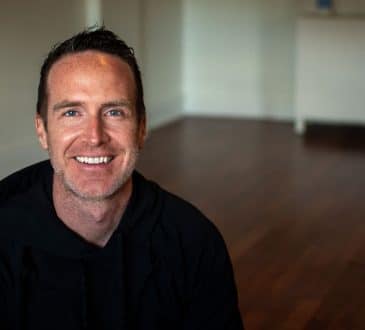Book Review: Human Ethics by Carl G. Schowengerdt

In his new book, Human Ethics, retired physician and ethicist Carl G. Schowengerdt looks at the many problems facing our world, and particularly the United States. Lamenting the downfall of human decency may seem like an easy stance, but as someone who has lived through the better part of a century and has studied ethics for decades, Schowengerdt treats it with complexity and wisdom. In these turbulent times, there’s something immensely gratifying in that.
At the heart of the issue is an ethical, moral, philosophical vacuum that’s come to mark modern society, and created a polarizing clash of perspectives and an emphasis on the human selfishness instead of empathy. Instead of common ground, we’ve shifted to common conflict: there’s us and there’s them. Instead of caring about the planet — which at the time of this writing is literally on fire in many locations and flooding in others – there’s a jarring disrespect for the value of nature and non-human (let alone human) life. The solution? Schowengerdt has many. But the basic one is to remember what it means to be kind, fair, and decent, and follow a singular code of universal principles . Easier said than done, he knows. He does his best to guide us on how.
Schowengerdt is a retired surgeon and physician who chose medicine as a career outside the family business, so to speak. His father was a Methodist minister and one of his brothers became a Methodist bishop. Discussions of ethics and morality were common at the dinner table, and even as a boy he was taught to consider the impacts of every action. (There’s a fascinating account of his family heritage, which includes a through-line of pacifists.) As a physician and thoracic surgeon he put those lessons into practical use, starting a community health center and working in local health clinics. Now in his late 90s, he’s still going strong, but his incisive intelligence has turned to trying to help heal our ethically bankrupt world.
In this inspiring book, he’s got a lot of blame to go around: he points directly at the religious right for its hard-edged, intolerant rhetoric, which serves to divide rather than unite. He’s got a useful chapter on dealing with psychopaths – including Assad, Putin, and Trump —world leaders whose own lack of ethics and empathy have led us into further chaos and hatred that could, he warns, bring down the planet. But he’s also filled chapters with examples of decency and cooperation, from Mahatma Ghandi to Barack Obama. While quick to point out their blind spots, he also acknowledges both the issue of time and complexity. He tackles the issues today that continue to divide and incite hatred: immigration, the economy, terrorism, gun control, abortion.
If there’s anything to raise questions in this book, it might be in one of Schowengerdt’s proposed solutions. In his attempt to find the common ground between widely disparate — and distanced — perspectives, he sets up a contradiction. His strategy for solving the divide on abortion proposes a ban on late-term (post 24 weeks) abortions — this despite the medical realities regarding why these might actually be needed, or clear data on the who why and what. As he admits, his proposed middle ground “will make no one who is a staunch woman’s right advocate, or a religious conservative, happy.” But equating women’s rights with religious conservatism would seem to clash with the rest of his own thoughtful and otherwise empathetic, compassionate discussion throughout the book. It may be that prompting readers to consider this is more important than blindly accepting his word. This is, after all, a book on ethics as a practice, which requires discussion and thought, and it feels like he’s inviting that here.
Overall, Human Ethics is filled with a level of measured wisdom that will give nearly anyone faith that we can, indeed, have a future. There’s a timelessness to his writing and a sense that history is a remarkable teacher. His discussion of the American Revolution is a welcome lesson in what truly motivates people give their all despite grueling circumstances. It’s not just rhetoric when it taps into universal truths, he reminds us. Powerful stuff to help us navigate the rest of this troubling century, to be sure. To learn more, visit Ycitypublishing.
Have you read?
World’s Best Countries For Retirement.
World’s Best Countries For Women.
World’s Best Countries To Visit In Your Lifetime.
US States With the Largest Gender Pay Gaps.
CEOs who have secured the most funding during their tenure in companies in each US state.
Bring the best of the CEOWORLD magazine's global journalism to audiences in the United States and around the world. - Add CEOWORLD magazine to your Google News feed.
Follow CEOWORLD magazine headlines on: Google News, LinkedIn, Twitter, and Facebook.
Copyright 2025 The CEOWORLD magazine. All rights reserved. This material (and any extract from it) must not be copied, redistributed or placed on any website, without CEOWORLD magazine' prior written consent. For media queries, please contact: info@ceoworld.biz








